Portable diesel generators today function as powerhouses delivered wherever the need is still great. Whether preparing for a power outage or using it on a job site or at an outdoor event, this heavy machinery can provide the energy to keep operations from grinding to a halt. With ever-increasing numbers of manufacturers and models on the market, understanding features, benefits, and applications is crucial for making the right choice. This article explains why diesel portable generators are considered incredibly versatile and trusted power solutions. Stay tuned as we explore what the machines can do and experience the feel of whether one can cater to your needs with the given specifications.
The Benefits of Portable Diesel Generators
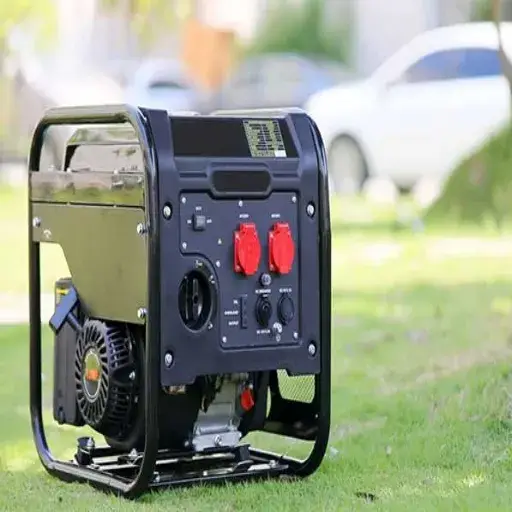
- Reliability – Diesel generators are renowned for their durability and ability to deliver consistent power, making them an ideal choice for emergencies or remote locations.
- Fuel Efficiency – Portable diesel generators consume less fuel compared to other types, helping to reduce operational costs over time.
- Longevity – With proper maintenance, diesel generators often outlast gasoline counterparts due to their robust engine construction.
- Versatility – These generators are suitable for a range of applications, including construction sites, outdoor events, and backup power during outages.
- Ease of Maintenance – Diesel engines require fewer repairs due to their simpler design, making them easier to maintain.
Reliability and Durability of Diesel Engines
They also enjoy an excellent reputation for being exceptionally reliable and having a very long lifespan, making them in high demand across various industries. Diesel engines are designed to withstand intense stress for extended periods, even in demanding applications. Compared to gasoline engines, diesel engines have fewer moving parts; hence, they are less prone to mechanical failure and require fewer repairs. Also, they develop higher torque at low RPMs, which in turn boosts performance and lifespan. Further aided by good manufacturing practices, advances in technology have also helped enhance the efficiency and environmental friendliness of diesels, thereby keeping them alive in contemporary times.
Fuel Efficiency: Energy Density of Diesel
The energy density of diesel fuel is one of the factors that make it an efficient source of power for engines. Diesel contains approximately 35.8 megajoules per liter (MJ/L), which is notably higher than the energy density of gasoline. This high energy content means that diesel engines can extract more work from the same amount of fuel, which is a major contributor to their superior fuel economy. Coupled with advances in engine technology, such as turbocharging and direct fuel injection, modern diesel engines are optimized to maximize energy usage while minimizing waste, resulting in reduced fuel consumption. These attributes make diesel an attractive option for applications requiring both efficiency and endurance.
Comparing Portable Diesel Generators to Other Types
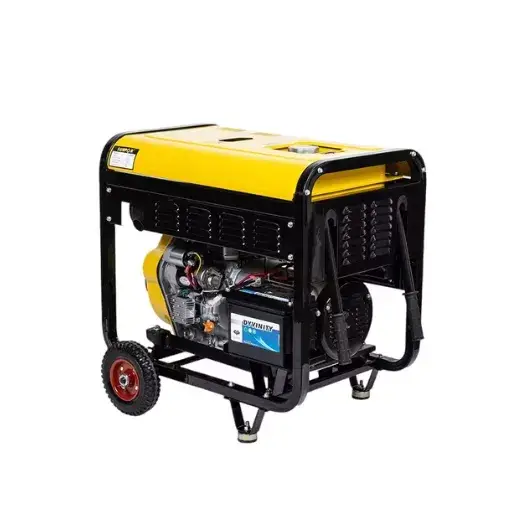
Diesel portable generators are often prized over others for their durability, efficiency, and reliability. Unlike gasoline generators, diesel models consume less fuel and can run for extended periods without requiring frequent refueling. Maintenance-wise, they need even less; the engines themselves are sturdy enough to endure heavy-duty mileage. Compared to propane generators, diesel generators are larger, making them better suited to power or energy-demanding situations. Furthermore, for storage, gasoline can be a risky option: it is flammable, which makes handling diesel generators a more practical choice in national or global situations.
Diesel vs. Gasoline Generators
| Key Point | Diesel Generators | Gasoline Generators |
|---|---|---|
| Fuel Efficiency | Higher, longer runtime | The lower consumes more fuel |
| Durability | More durable, longer lifespan | Less durable, shorter lifespan |
| Maintenance | Requires less frequent maintenance | Needs more frequent maintenance |
| Fuel Availability | Widely available globally | Readily available in most areas |
| Cost | Higher upfront cost | Lower upfront cost |
| Noise Levels | Quieter with sound attenuation | Generally louder |
| Emissions | Lower emissions with modern tech | Higher emissions |
| Performance in Cold | Reliable in cold weather | May struggle in cold conditions |
| Safety | Less flammable fuel | More flammable fuel |
| Portability | Heavier, less portable | Lighter, more portable |
| Eco-Friendly Options | Diesel-solar hybrids available | Limited eco-friendly options |
| Use Cases | Heavy-duty, long-term use | Light-duty, short-term use |
Diesel vs. Solar Generators
| Key Point | Diesel Generators | Solar Generators |
|---|---|---|
| Fuel Source | Diesel fuel | Sunlight |
| Reliability | Reliable in all weather | Weather-dependent performance |
| Upfront Cost | Higher initial cost | Lower initial cost |
| Operating Cost | Higher due to fuel | Minimal, no fuel needed |
| Maintenance | Requires regular servicing | Minimal maintenance |
| Portability | Heavier, less portable | Lightweight, highly portable |
| Noise Levels | Quieter with modern tech | Silent operation |
| Emissions | Produces emissions | Zero emissions |
| Power Output | High, suitable for heavy loads | Limited, best for light loads |
| Runtime | Continuous with fuel supply | Limited to sunlight hours |
| Eco-Friendliness | Less eco-friendly | Highly eco-friendly |
| Use Cases | Heavy-duty, industrial | Off-grid, small appliances |
| Hybrid Options | Diesel-solar hybrids available | Solar-diesel hybrids available |
Key Factors to Consider When Buying a Portable Diesel Generator
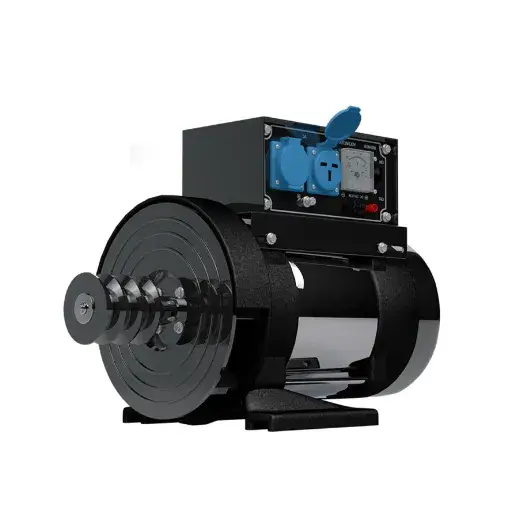
Factors to consider in buying a portable diesel generator include the following:
- Power Requirements – To determine the wattage that is positively sufficient to power your necessary devices or equipment, check to see if the generator can handle that particular load.
- Fuel Efficiency – Opt for a model that maximizes fuel efficiency, allowing you to pay less in running costs and enjoy a longer operating time.
- Size and Portability – Ensure the generator is lightweight, can be easily moved from one place to another, and can be stored wherever necessary.
- Noise Levels – The level of noise some generators produce becomes a factor if noise creates interference with something.
- Durability and Build Quality – A durable generator is a good investment, as it will be made from high-quality materials, thereby withstanding extended periods in varied conditions.
- Safety Features – Safety should be the top priority when selecting a generator. Include machines that feature overload protection and low oil shutdown capabilities to ensure safe operation.
- Maintenance Needs – Choose a model that requires easy maintenance and whose customer support is easily accessible in case of breakdowns, thereby saving time on repairs.
Determining Power Output Needs
The power output calculation for a generator starts with listing all appliances, tools, or devices that one plans to power during the generator’s operation. Mark which items are necessary and which ones can be optional, and then jot down the names and watt ratings, often found right on the appliance label or in the user’s manual. By accounting for the wattage of all devices and then adding some buffer time (10-20% usually suffices), one arrives at the total power requirement. Refrigerators and air conditioners typically require a significantly higher wattage at startup than during regular operation. By examining your power requirements, you can wisely choose a generator with a sufficient power output capacity, ensuring it performs reliably without the risk of an overload situation.
Portability Features: Weight and Size
Portability is a key factor in evaluating generators, particularly for individuals who require them for outdoor activities, work sites, or emergencies. Lightweight and compact models are popular choices since they are easier to carry and store. Modern design trends often include solid wheels, comfortable handles, or even collapsible frames to facilitate movement. When determining the best option, consider the weight of the entire unit, the actual size of the generator, and the frequency of needing to relocate it. Generally, lighter models offer more convenience but often compromise on power and runtime.
Maintenance Tips for Longevity
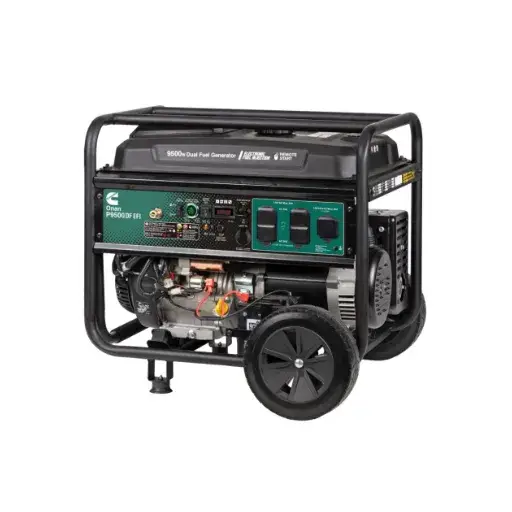
- Perform Regular Oil Changes – Check and change the oil according to the manufacturer’s instructions to keep the engine running smoothly and prevent wear.
- Clean or Replace Air Filters – Ensure air filters are cleaned regularly or replaced when they become clogged with dirt to maintain proper airflow and efficiency.
- Inspect and Replace Spark Plugs – Inspect the plugs for wear or damage, and replace them when necessary to ensure a good start.
- Run Your Generator Monthly – Start and run the generator for a few minutes each month to keep its components lubricated and ensure it is ready for use when needed.
- Store Properly – Store your generator in a dry, clean, and well-ventilated area when not in use. Never leave it exposed to moisture.
- Use Fresh Fuel – Always use fresh fuel and treat it with a fuel stabilizer to avoid clogs and damage in the fuel system.
- Follow the Manufacturer’s Schedule – Adhere to the maintenance schedule outlined in the owner’s manual for cleaning, inspections, and replacements.
Importance of Regular Oil Changes
Maintaining efficiency and extending the life of your generator is all about regular oil changes. The engine oil lubricates the moving or friction surfaces, preventing excessive wear and overheating. The oil, if not used for replacement for a long time, will deteriorate due to contamination, such as dust and metallic particles, thereby reducing the oil’s performance. If oil changes are not performed, this, combined with clogged oil pathways, can create unnecessary engine strain and potentially lead to total engine failure. Using the generator as per the manufacturer’s instructions on time will keep it in good working condition, minimizing the chances of serious repairs and ensuring efficient delivery when you need it the most. This straightforward maintenance task not only increases the lifespan of your generator but also enhances its efficiency.
Routine Cleaning and Inspection
I always schedule regular cleaning and inspections to maintain my generator in good working order. Dirt, debris, and dust accumulate on the external parts, causing blockages and improper ventilation. These are cleaned regularly. I also keep an eye on the condition of the air filter, wiring, and fuel lines, checking for any signs of wear or damage, and I will address any issues immediately before they become significant problems.
Recent Advancements and Trends in Portable Diesel Generators
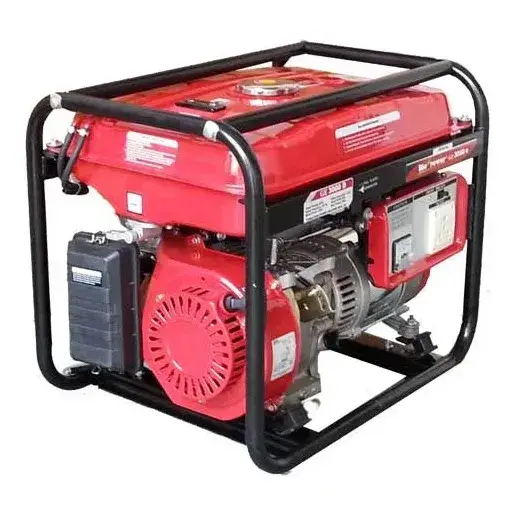
-
Enhanced Fuel Efficiency
Nowadays, portable diesel generators are specifically designed for optimal fuel efficiency, which reduces operational costs and environmental impacts. Advanced engine technologies and more innovative fuel management systems are, therefore, making significant contributions to this.
-
Quieter Operation
Noise reduction has been a big focus. Ever since insulation technology improved and the design of mufflers and enclosures began to reduce noise pollution, generators have become quieter and more suitable for residential and urban applications.
-
Integration of Smart Technologies
Now, many generators feature smart controls that allow for monitoring and operation via a smartphone app. These enable users to check performance, fuel levels, and maintenance needs in real time.
-
Compact and Lightweight Designs
Portability is emphasized in newer models, while performance remains uncompromised through compact and lightweight designs that facilitate easier transport and storage.
-
Greater Environmental Compliance
Manufacturers are increasingly adhering to higher emission standards; thus, generators produce fewer pollutants while maintaining high performance.
Improved Combustion Technology
Optimization and combustion technology in small diesel generators have remained highly efficient and environmentally friendly. In the hands of manufacturers, the best mixtures of air and fuel, combined with the most effective injection systems, can produce a cleaner burn of fuel with fewer unburnt carbon particles. This approach reduces the emissions of harmful gases, such as nitrogen oxides (NOx) and particulates, thereby conforming to stringent environmental standards. Improved combustion processes also result in enhanced fuel economy, allowing users to experience longer runtimes per unit of fuel.
Integration of Hybrid Technologies
When a hybrid confers competing advantages over conventional internal combustion engines, the resulting energy solution is said to be both sustainable and efficient. Hybrid systems utilize drive batteries and regenerative braking systems to conserve energy that would otherwise be wasted. Consequently, such a system reduces greenhouse gas emissions and improves fuel efficiency. Another feature of hybrid vehicles is that they perform best in city operations, where frequent stops and starts maximize the utility of the electric system. This can contribute to a more environmentally friendly future, with improved energy efficiency, aligning with emerging environmental trends.
Reference Sources
Here are five professional and authoritative reference sources of portable diesel generators from academic and research-oriented websites:
- ScienceDirect
Title: Hydrocarbon exhaust emissions from a portable power generator fueled with three different fuels
Description: A study comparing emissions from diesel and biodiesel fuels in portable generators. - ASCE Library
Title: Comparison of Conventional Diesel and Mobile Solar Hybrid Power Generators in Long-Term Temporary Power Applications
Description: Research on the economic and practical aspects of diesel and hybrid generators. - AIP Publishing
Title: An Alaska case study: Diesel generator technologies
Description: Analysis of diesel generator performance in remote and challenging environments. - FUTMinna Repository
Title: The Use of Portable Electricity Generators in Edo State, Nigeria
Description: A study on the demand and usage of diesel generators in Nigeria. - ScienceDirect
Title: Techno-economic feasibility of energy supply of remote villages in Palestine by PV systems, diesel generators, and electric grid
Description: A techno-economic analysis of diesel generators versus other energy sources in remote areas.
Frequently Asked Questions (FAQs)
What is a portable diesel generator?
A portable diesel generator is a compact and mobile power source that runs on diesel fuel. It’s designed to provide electricity for various applications, including residential use, construction sites, and outdoor events. These generators are favored for their efficiency, durability, and ability to deliver substantial power output.
What are the benefits of using a portable diesel generator?
Portable diesel generators offer several advantages, including improved fuel efficiency, extended run time, and high power output. They are ideal for both commercial mobile applications and personal use, providing reliable power in emergencies or remote locations. Additionally, many models are designed to operate quietly, making them suitable for residential areas.
How do I choose the right portable diesel generator for my needs?
When selecting a portable diesel generator, consider factors such as power output (measured in kilowatts, KW), fuel efficiency, run time, and the type of loads you plan to power. It’s also essential to look for reputable brands, such as Cummins, Onan, Kubota, or Yanmar, and check for features like single-phase capability and quiet operation.
What is the typical run time of a portable diesel generator?
The run time of a portable diesel generator varies depending on its fuel tank size and the load it supports. Most models can run between 8 and 12 hours at half-load on a full tank. For longer durations, consider generators with larger fuel tanks or those designed for extended service life.
Can I use a portable diesel generator for my RV?
Yes, portable diesel generators are an excellent choice for RVs. They provide a powerful and convenient power source for appliances and electronics while on the road or at campsites. Look for models that are compact and have lower noise levels to ensure a pleasant experience.
What should I consider regarding maintenance and service life?
To ensure a long service life for your portable diesel generator, regular maintenance is crucial. This includes checking oil levels, replacing filters, and inspecting fuel lines. Following the manufacturer’s guidelines will help you keep your generator running efficiently and extend its overall lifespan.
Are there different brands of portable diesel generators?
Yes, many reputable brands are offering portable diesel generators, including Cummins, Onan, Kubota, and Yanmar. Each brand has its unique features, specifications, and price points, so it’s essential to research and compare models to find the best fit for your needs.
How much power can a portable diesel generator provide?
Portable diesel generators offer a range of power outputs, typically ranging from 2 kW to over 20 kW, depending on the model. When choosing a generator, ensure it can handle the total electrical load of the devices you plan to run simultaneously.
Where can I purchase a portable diesel generator?
You can purchase portable diesel generators from various sources, including online retailers, local dealers, and specialty shops. It’s advisable to buy from authorized dealers to ensure you receive genuine products and access to warranty services.
